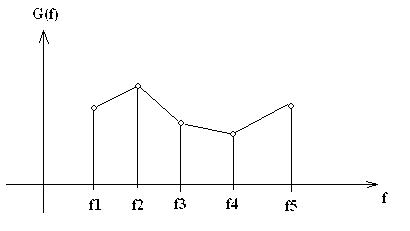rakue
Newbie level 5

- Joined
- Oct 27, 2012
- Messages
- 10
- Helped
- 0
- Reputation
- 0
- Reaction score
- 0
- Trophy points
- 1,281
- Activity points
- 1,362
Hi, I don't know if this is the proper part of the forum to ask this, but I'm trying to figure out how I can obtain a certain value from an equation that contains an integral if I want to use experimental data. the equation looks like this:
B= (∫G(f)df)2 / (∫G(f)2df)
where it is to be evaluated from 0 to ∞.
But to keep my question simple, say, my equation is: B= ∫G(f)df
Now, I have experimental values for "G(f)" and it's corresponding "f" (I'm not even sure if I'm understanding this correctly).
Is it right for me to simply, multiply the G's with their corresponding f's and then take the sum? So in effect, I'm basically doing this:
Ʃ(Gi*fi) where i is the index for each value of f
Am I still integrating if I do this? If not, what should be the proper approach to this?
thank you very much for all your help!
B= (∫G(f)df)2 / (∫G(f)2df)
where it is to be evaluated from 0 to ∞.
But to keep my question simple, say, my equation is: B= ∫G(f)df
Now, I have experimental values for "G(f)" and it's corresponding "f" (I'm not even sure if I'm understanding this correctly).
Is it right for me to simply, multiply the G's with their corresponding f's and then take the sum? So in effect, I'm basically doing this:
Ʃ(Gi*fi) where i is the index for each value of f
Am I still integrating if I do this? If not, what should be the proper approach to this?
thank you very much for all your help!


